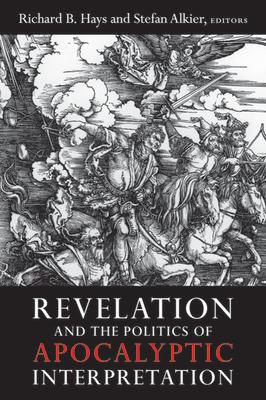John's apocalyptic revelation tends to be read either as an esoteric mystery or a breathless blueprint for the future. Missing, though, is how Revelation is the most visually stunning and politically salient text in the canon. Revelation and the Politics of Apocalyptic Interpretation explores the ways in which Revelation, when read as the last book in the Christian Bible, is in actuality a crafted and contentious word. Senior scholars, including N.T. Wright, Richard Hays, Marianne Meye Thompson, and Stefan Alkier, reveal the intricate intertextual interplay between this apocalyptically charged book, its resonances with the Old Testament, and its political implications. In so doing, the authors show how the church today can read Revelation as both promise and critique.

Revelation and the Politics of Apocalyptic Interpretation
John's apocalyptic revelation tends to be read either as an esoteric mystery or a breathless blueprint for the future. Missing, though, is how Revelation is the most visually stunning and politically salient text in the canon. Revelation and the Politics of Apocalyptic Interpretation explores the ways in which Revelation, when read as the last book in the Christian Bible, is in actuality a crafted and contentious word. Senior scholars, including N.T. Wright, Richard Hays, Marianne Meye Thompson, and Stefan Alkier, reveal the intricate intertextual interplay between this apocalyptically charged book, its resonances with the Old Testament, and its political implications. In so doing, the authors show how the church today can read Revelation as both promise and critique.